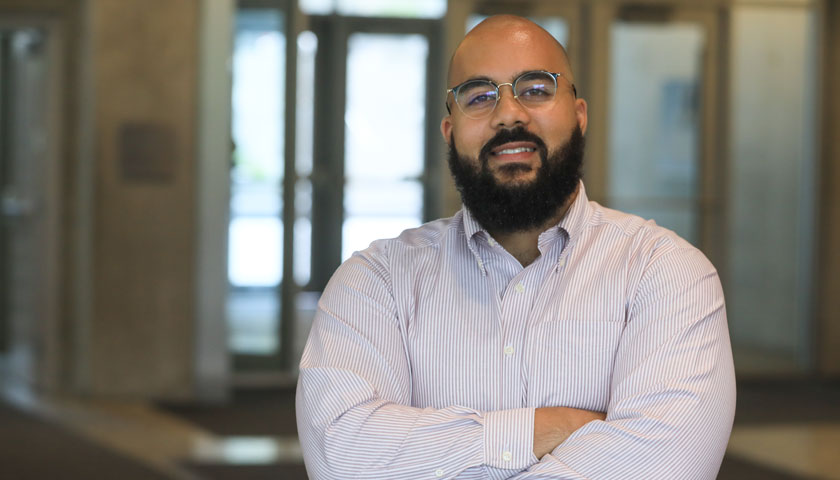Disrupting the Prison to Homelessness Pipeline

Sociology Professor Lucius Couloute presents the problem to his students in simple terms: Would you rather people coming out of prisons have safe and stable housing, or should they be forced into shelters or to live on the street?
“Most students would prefer that people leaving prisons have somewhere to go,” he says. “The challenge becomes one of designing policies and programs that make it happen.”
The prison-to-homelessness pipeline is a growing issue in the United States, according to Couloute, who says that “formerly incarcerated people are about 10 times more likely to experience homelessness than the general public.”
He recently spoke about the various economic and social mechanisms that prevent formerly incarcerated people from securing safe housing -- including having a criminal record, being unable to get a well-paying job, and dealing with addiction and mental health issues -- to a nationwide audience in a virtual town hall hosted by the National Alliance to End Homelessness.
Watch the Nationwide Town Hall on Ending Homelessness.
“Many of the issues that lead to imprisonment in the first place also lead to homelessness upon release, perpetuating this vicious cycle of incarceration and neglect,” said Couloute.
He recommends three separate policy-based initiatives to improve the current prison-to-homelessness dilemma.
The first is to stop the over-policing that he says occurs in many cities and towns, particularly those in Black and Latinx communities.
“In the United State, we tend to use the police as a first response to a range of issues that could be better addressed by mental health professionals, addiction treatment providers, mediators, and trained social workers,” says Couloute.
“If we changed our models of responding to 911 calls in a way that relied less on arresting and more on addressing issues as they occur, we could interrupt the flow of people to prisons and jails to begin with.”
Couloute would also like to see a movement to “ban the box” on housing applications that asks applicants to disclose their criminal history, arguing that other factors such as rental history and ability to pay are more accurate predictors of whether or not someone will make a good tenant.
Finally, Couloute advocates for automatic criminal record expungement procedures.
“I believe criminal records are in and of themselves criminogenic,” he said. “They promote criminal behavior by excluding folks from things like jobs and end up facilitating crimes of survival.
“I can’t think of any good reason to prevent people from working, paying taxes, and
re-integrating back into society.”
Contact
Tony Ferullo
Office of Public Affairs
617-573-8448
Greg Gatlin
Office of Public Affairs
617-573-8428



